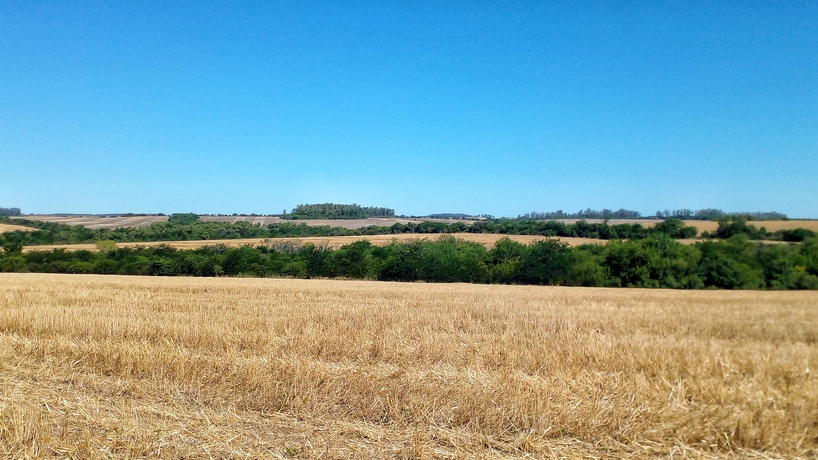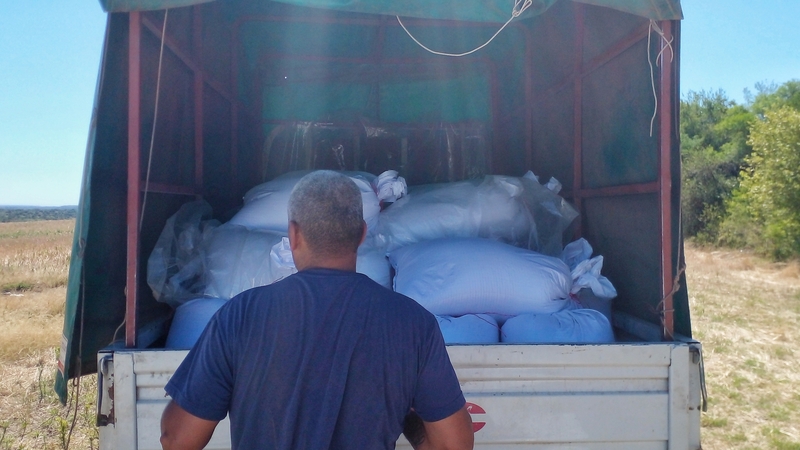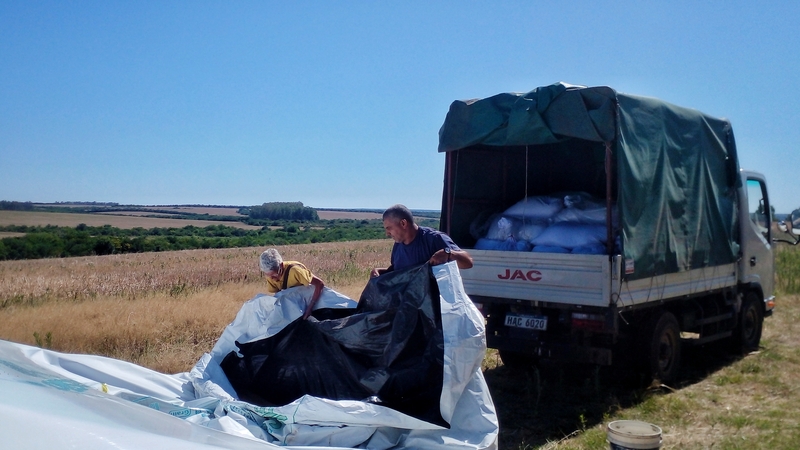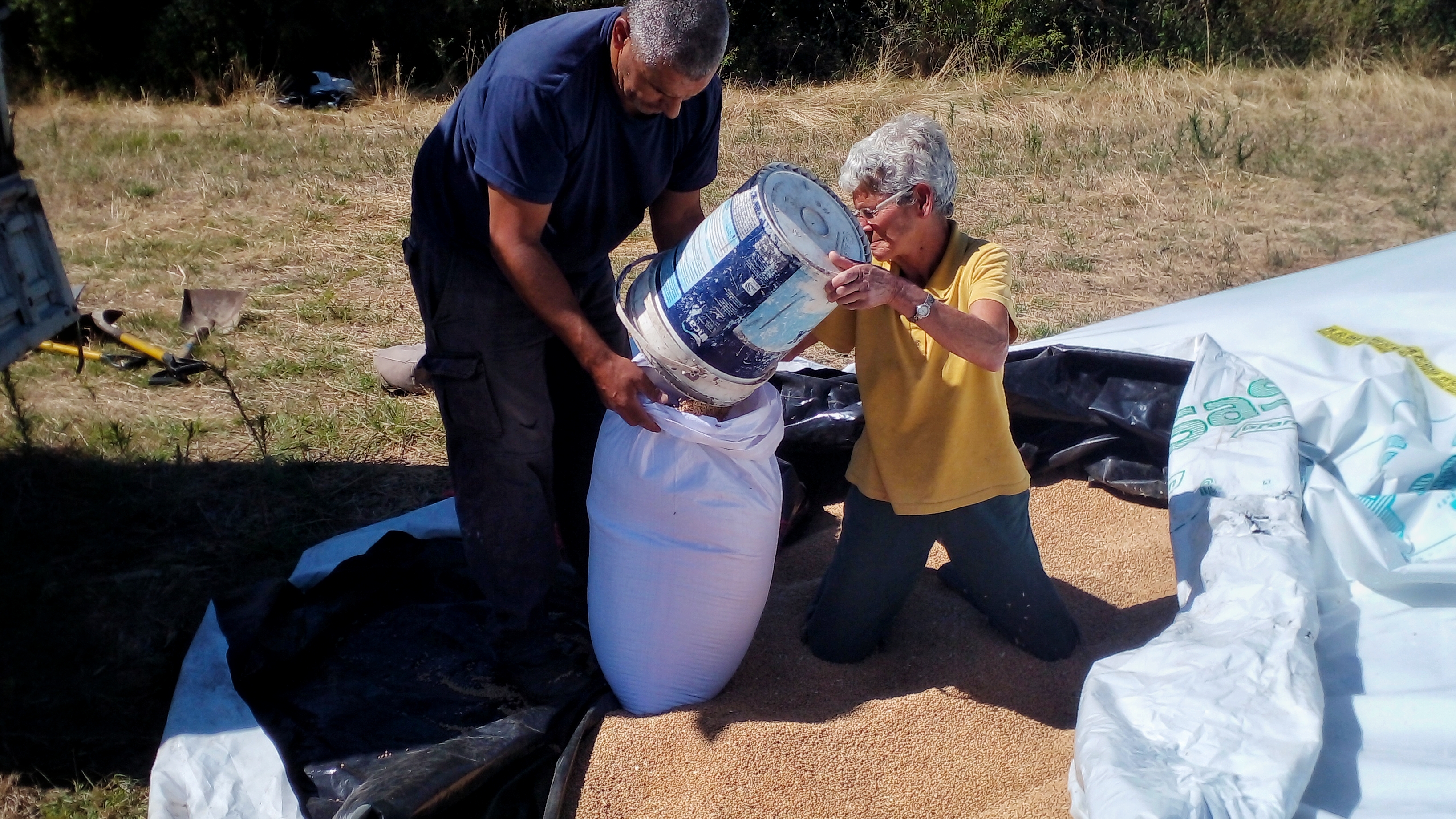Wheat Grain Milling in the Light-Community Fraternity of Aurora
Wheat Grain Milling in the Light-Community Fraternity of Aurora
Milled wheat grain for bakery use
The Light-Community Fraternity of Aurora, affiliated to the Fraternity – Humanitarian Federation (FIHF), since the year 2021 has been producing its breads with flour made from the milling of wheat grain within the Light-Community itself.
Due to the increase in the number of places where food is prepared in 2022, the Light-Community currently has an area specifically structured for the bakery work that it develops weekly, where wholemeal and gluten-free breads are made.
After the acquisition of the specific machinery for milling the purchased wheat, in 2021 a process began, little by little and through the elaboration of new recipes, to replace the use of white flour with whole flour from these milled grains.

Stock creation
Also, as a way of creating an annual stock, it was calculated that the amount needed to meet consumption throughout the year would be two tons.
When starting the search for farmers who could sell this amount of grain to the Light-Community, a collaborator from the Light-Network who works in the area of agriculture was contacted, and that, after contacting some producers in the region, found a farm that cultivates a specific grain for bakery use.

Negotiations for the purchase of the grain were initiated, and the grains were finally offered as a donation to the Light-Community by this same collaborator, who purchased the two tons of wheat expected to supply the entire year of 2022.
Increased consumption of bread
Due to an increase in the number of members of the Light-Community and the opening of the Marian Center of Aurora in May 2022, for which the bread made in the Light-Community is also offered to the pilgrims who visit there, the two tons of grain ended in early November 2022.
New producers were contacted in the search for more grains that could continue to supply the Light-Community until the end of the year. However, due to the fact that wheat harvests would only take place from mid-December onwards, it was only possible to reacquire the grains again at the end of December.

New donations
The same Light-Network collaborator who had donated the wheat the first time offered the Light-Community the donation of another two tons for the year 2023. With this, based on the experience of 2022, we could supply the consumption of flour for a part of the year.
On the other hand, the contact with a well-known farmer, who has supported the Light-Community Fraternity on several fronts in the agricultural area for several years, allowed that, for the year 2023, the Light-Community could have the necessary amount of wheat grains for the manufacture of bread for the year.
This farmer initially offered the Light-Community an important donation of organic soybeans. However, due to the intense weather at the end of last year, all this plantation was lost and he was unable to make the donation he intended.
So, determined to help the Light-Community, he donated two more tons of wheat as a substitute for the organic soy.

Year 2023 and grain conservation
This amount of grain, however, requires specific care, in which every three months approximately, the 40 kg bags inside which they were kept need to be moved, opened and checked for a small insect called “weevil bug” or “woodworm”, to avoid their proliferation. They feed on grains and cereals, reducing them to dust.
Now with four tons of wheat, the Light-Community Fraternity of Aurora will have a supply of wheat grains, for milling and manufacturing the flour used in the bakery, for the entire year of 2023.
In addition to being consumed by the Light-Community itself, the breads are also offered to pilgrims arriving at the Marian Center, Light-Network collaborators and neighbors in the region.
To get the grains, three members of the Light-Community Fraternity took a small truck to the farm that cultivates them.
